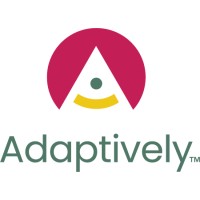5 Tips to Raise Confident and Independent Learners
We all know the importance of strong literacy and math skills for life success, but there’s one more subject that a child needs to boost their success—independence. Independent children navigate their world with a “can do” spirit, knowing they possess the skills to get through day-to-day challenges.
As your child ages, your role with them changes. For example, when your children were very young, you needed to baby-proof the house, clean up their messes, and provide fixes for all their needs. They relied on you for everything. However, even at as young an age as two and three, children become capable of helping and accomplishing more independently. They begin to engage in self-care tasks such as feeding and toileting and need guidance rather than everything done for them. By the time they get to elementary school, they are ready to take on more social decision-making and responsibilities at home and school.
It’s normal to want to help our children avoid consequences that will affect their grades, comfort, or social relationships. However, when we mediate children and their minor problems, we may impede an opportunity for their growth. The following tips can help you guide your child towards greater independence.
-
Use natural opportunities to teach, but make sure to teach at the right times.
If you are rushing to get to school or work, you simply won’t have the time to patiently teach independence skills such as packing a lunchbox or choosing clothes. Instead, wait for a time when the hours are more relaxed to practice independence routines, and watch your child start putting them into practice when the time counts!
-
Let your child make a mess.
A child’s motor skills refine as their bodies grow, so spills and breaks will occasionally happen. When the inevitable juice spills during lunch prep or a plate breaks as your child tries to put dishes away, let your child know that mistakes are part of learning. Your guidance and assurance will help them think of ways to problem solve through the situation rather than dwell on the mishap.
-
Incorporate written or picture schedules.
You likely rely on an agenda planner or your phone to know what’s ahead for the day and week. Most of us can’t rely solely on what information we’ve been told to remember important information. Accordingly, while you may have shown or explained to your child what you need them to do three times, they might still forget. Just as you use visual cues like calendars and sticky notes, your child can also benefit from visuals. Examples of visual schedules are putting a laminated list of get-ready tasks on their bedroom door, creating a picture or a written plan of daily and weekly chores, or putting a small checklist on a luggage tag of everything that should be in your child’s backpack before heading out the door. Visual schedules can be as simple as lists for readers or created with pictures for younger children or non-readers.
-
Remember that failure is an option.
It’s natural to want to save our children from the consequences of poor choices. Rather than rescue them, however, it’s better to guide them through their failures. Whether they left homework at home, said something unkind to a friend, or forgot to ask you for book-fair money, these situations cause children to use high order thinking to problem solve, seek assistance, and prevent undesirable consequences in subsequent cases. If we rescue children from the minor discomforts they face in their physical world or relationships, they may learn to rely on outside people rather than to restore situations on their own. When they find solutions on their own, their confidence and decision-making skills will grow!
-
Give your child age-appropriate home responsibilities.
Whether putting laundry away, washing dishes, or helping with the family pet, including your child in your family’s routine tasks gives them a sense of importance. Praise your child’s efforts, and you might find they start taking on jobs you didn’t even ask them to do simply because it makes them feel good!
Adaptively is passionate about equipping students with the skills to unlock their futures, as independent children become tomorrow’s leaders. We invite you to learn more about Adaptively’s enrichment programs for students in 1st-8th grades and how our approach to education encourages academic growth and helps children foster independence.


